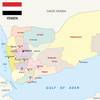USCG Issues Zika Virus Precautions
Recently, the World Health Organization designated the Zika virus as a global public health emergency. This has prompted questions from the maritime industry regarding reporting requirements for any vessel crewmembers or passengers who may be exhibiting symptoms of the Zika virus.
Vessel and facility representatives are reminded of the following requirements to report hazardous conditions and illnesses:
* Under 42 C.F.R. § 71.2, vessel representatives are reminded that they are required to report sick or deceased crew or passengers within the last 15 days to the Center for Disease Control (CDC).
* Also, under 33 C.F.R. § 160.215, the owner, agent, master, operator, or person in charge of a vessel is required to immediately notify the nearest Coast Guard Sector whenever there is a hazardous condition aboard the vessel. An ill person on board may constitute a hazardous condition that should be reported. The Captain of the Port should ensure that any parties making a report of this nature are informed of their obligation to notify the CDC.
Some key points to remember concerning Zika:
* Zika is a virus that is spread by mosquitoes; in rare cases, the virus may be spread via blood transfusions, sexual contact, and from mother to child in the womb. Most people who get Zika will not have any symptoms.
* Those who do get symptoms will generally have a fever, rash, joint pain, conjunctivitis (red eyes), and, occasionally, muscle pain and/or a headache. It is uncommon for people infected with the Zika virus to require hospitalization, and deaths are rare.
* There is no specific treatment or vaccine for Zika. Recommended supportive care is rest, hydration, and pain/fever management with acetaminophen (i.e., Tylenol).
* The CDC is investigating a possible link between birth defects and Zika infection during pregnancy. While this link has not yet been definitively established, the CDC recommends the following:
- pregnant women consider postponing travel to any Zika-affected area;
- women who are trying to become pregnant and are planning travel to a Zika-affected area talk to their healthcare provider about the risk of Zika infection; and
- if a pregnant woman must travel to a Zika-affected area, she should strictly follow steps to prevent mosquito bites during her trip.
* Take preventive measures to avoid mosquito bites including avoiding/limiting outdoor activities one hour before and after dusk and dawn, when mosquitoes are most active; cover exposed skin; and use insect repellent. (Do not use insect repellent on babies younger than 2 months of age). CDC information on insect repellent and recommendations for preventing mosquito bites can be found at http://wwwnc.cdc.gov/travel/page/avoid-bug-bites.
* Use authoritative information sources to obtain the latest news about the Zika virus such as those with .gov or .mil websites including http://www.cdc.gov/zika. Cyber criminals often use high interest events to target unsuspecting individuals. To avoid cyber phishing scams, do not respond to or click on links in unsolicited email regarding the Zika virus.
Questions regarding this MSIB should be forwarded to the Office of Port and Facility Compliance (CG-FAC) at (202) 372-1171![]() (202) 372-1171 FREE FREE/1107 or by email at [email protected].
(202) 372-1171 FREE FREE/1107 or by email at [email protected].
Source: U.S. Coast Guard Office of Port and Facility Compliance Marine Safety Information Bulletin 01-16 issued 3 February 2016












